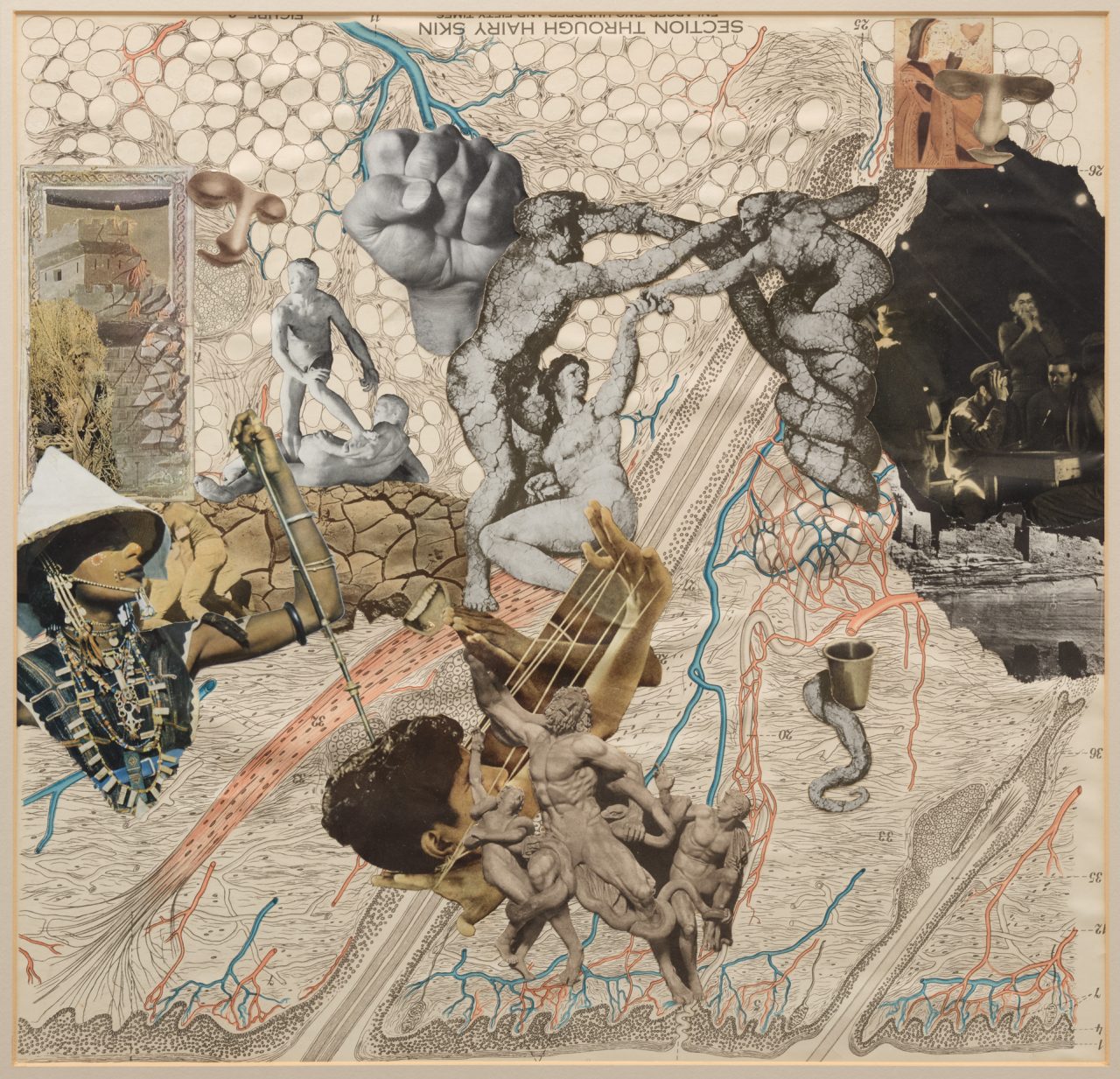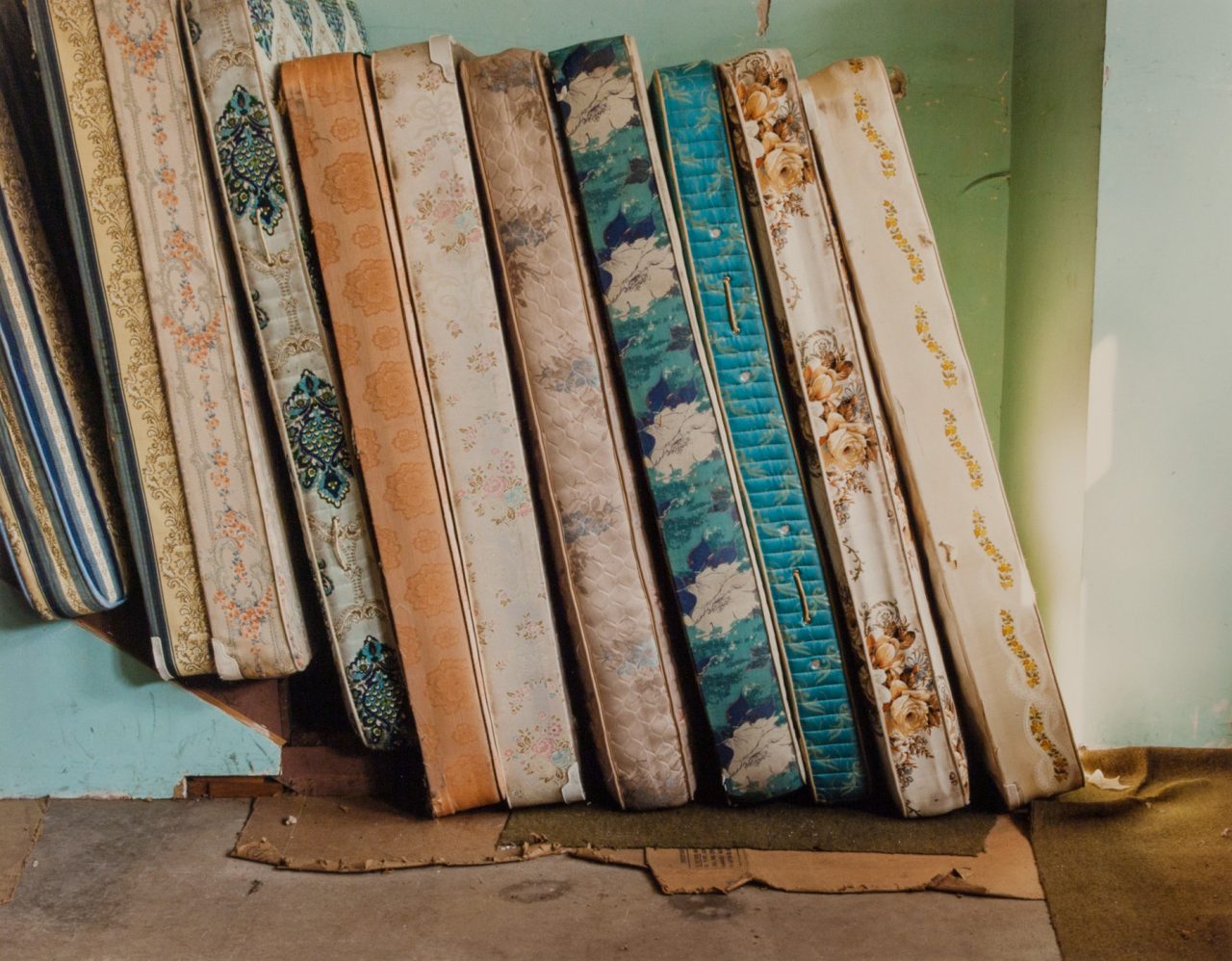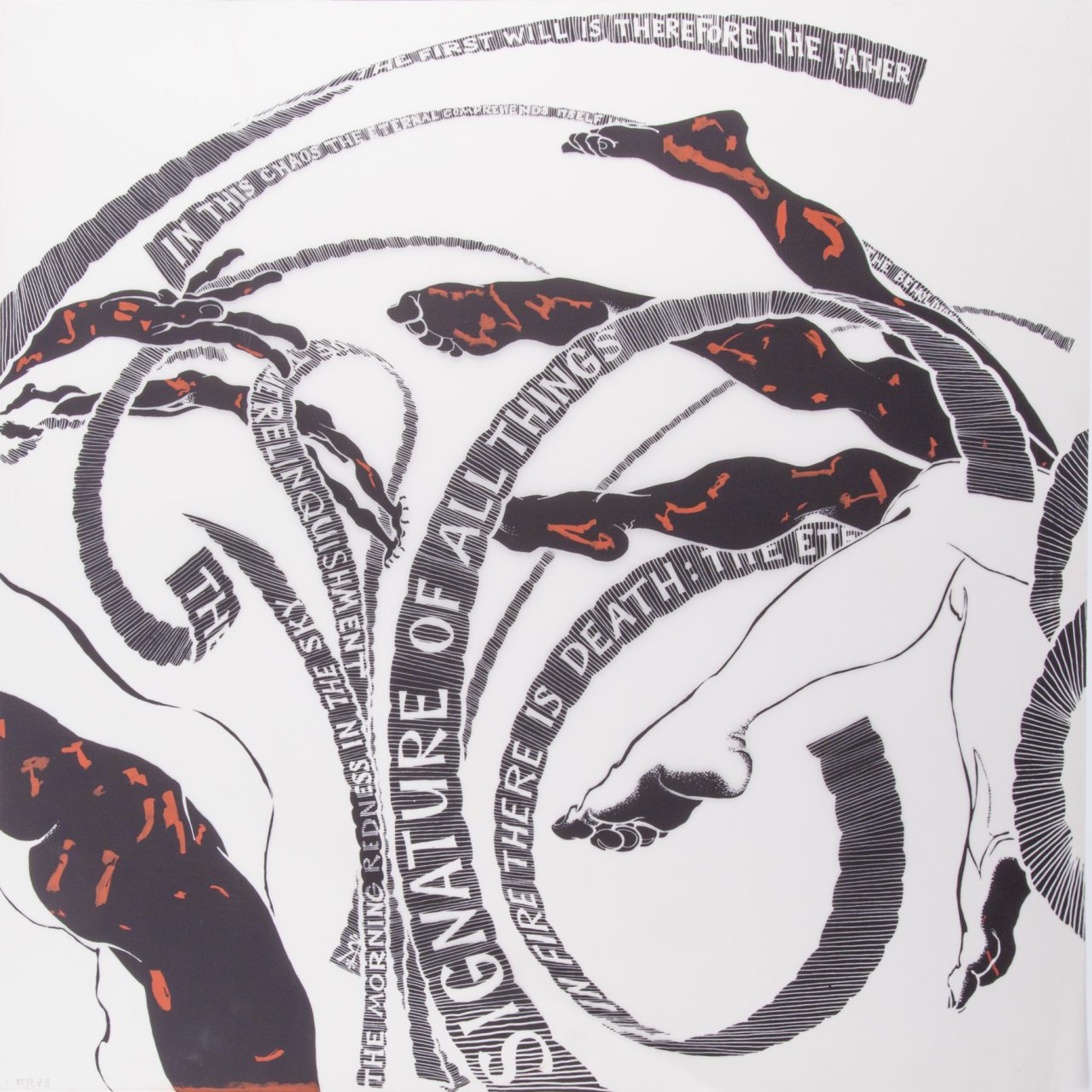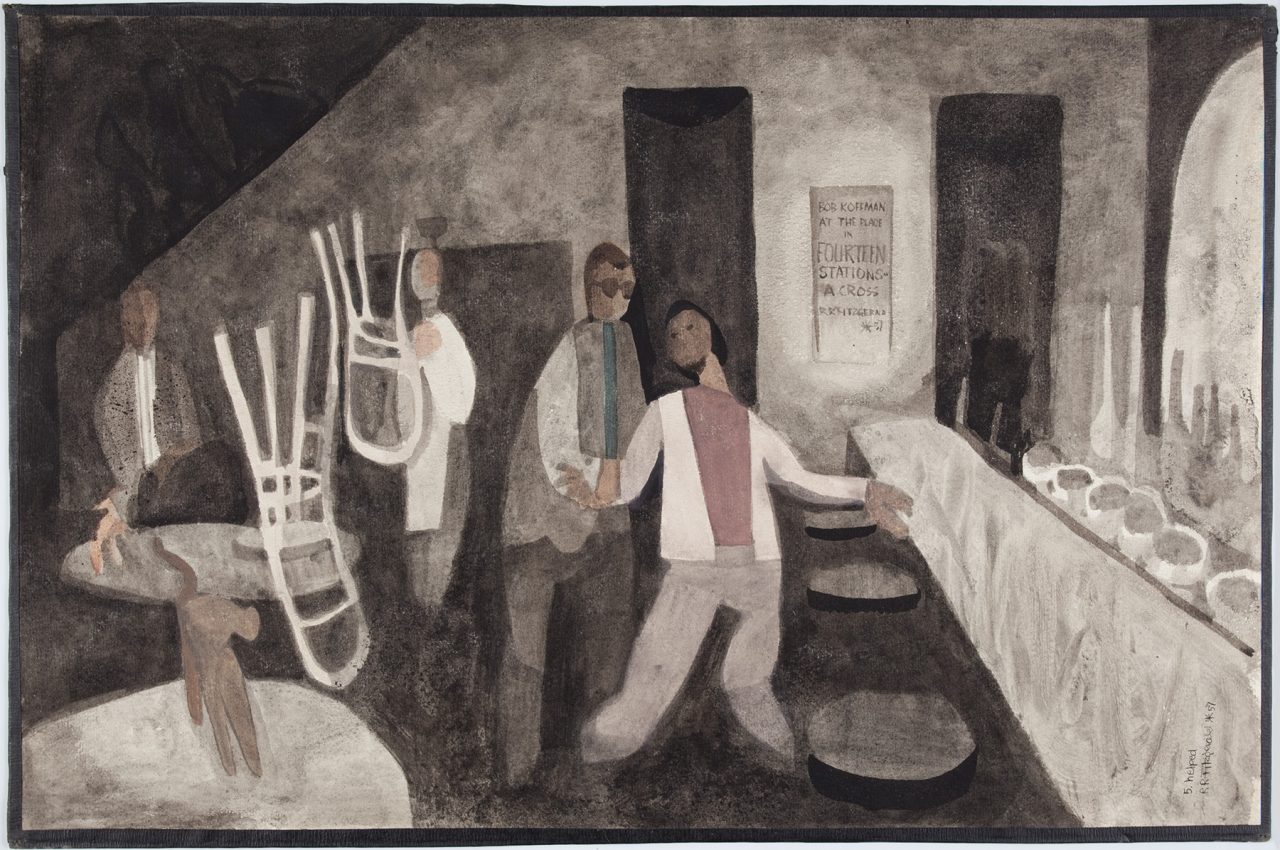Tuesday, 10 Sept 2024 at 12:30 pm with Soft Turns
Tuesday, 8 Oct 2024 at 12:30 pm with Lisa Myers
Tuesday, 5 Nov 2024 at 12:30 pm with Camille Georgeson-Usher
All conversations are online via Zoom
Conversation Series: Of Other Earths
-
Weiyi Chang
Weiyi Chang is a writer and curator based in Toronto. Currently the 2023-24 Writer-in-Residence at Gallery 44, Chang’s research centres around the nexus between the cultural, social, economic, and political forces that sanction ecological violence, including climate change and biodiversity loss. Her writing has been widely published and she has curated projects in Canada, Germany, and the United States. Chang was a 2019-20 Helena Rubinstein Curatorial Fellow at the Whitney Museum of American Art’s Independent Study Program. She holds a MA in Critical and Curatorial Studies from the University of British Columbia.
Read More
-
Soft Turns
Soft Turns is the collaborative effort of Wojciech Olejnik and Sarah Jane Gorlitz. Alongside simple mechanisms —pulleys, mirrors, paper, lenses — and crucially, their own bodies, they use stop-motion animation’s capacity to stretch and collapse time, to attempt to get as close as possible to the rhythms of their subjects. The results are slow-paced, immersive, intimate video-centred installations. Recent research interests include: controlled artificial environments such as greenhouses and data centres, plant-human interactions and the physics of information. Feature articles about their work have been published in Canadian Art and Esse, and their writing will be included in the upcoming edition of Public Journal. Their work has been exhibited across Canada and internationally, most recently at the Plumb (Toronto, 2021) 8eleven (Images Festival, 2018) and The Art Museum at the University of Toronto (2018). They have been privileged to undertake residencies abroad and in Canada, including a pivotal three years at the School of Environmental Sciences, University of Guelph (2016-19). They are current artists-in-residence at Gallery 44 Centre for Contemporary Photography, Toronto (2023-2024), where they host a bi-monthly reading group called Thinking through the milieu: decentralizing thinking while spending time with plants. Gorlitz is a settler of English and Mennonite descent and Olejnik immigrated from Poland as an adolescent. They live with their two young daughters in the Lakeshore Village Artist Co-op, on the lands of the Mississaugas of the Credit, the Anishnabeg, the Chippewa, the Haudenosaunee and the Wendat peoples, in what is commonly referred to as Toronto.
Read More
-
Lisa Myers
Lisa Myers (Beausoleil First Nation, born in Oakville, ON, Canada; lives in Port Severn and Toronto, ON, Canada) is an independent curator and artist with a keen interest in interdisciplinary collaboration. Myers has a Master of Fine Arts in Criticism and Curatorial practice from OCAD University. Her recent work includes printmaking, stop-motion animation, and performance involving food. She is Associate Professor in the Faculty of Environmental Studies at York University, Toronto. Myers is a member of Beausoleil First Nation.
Read More
-
Camille Georgeson-Usher
Camille Georgeson-Usher is Assistant Professor in the Department of Art History, Visual Art & Theory at UBC. She is a Coast Salish / Sahtu Dene / Scottish scholar, curator, and writer from Galiano Island, BC. Through her research, Usher is interested in the many ways in which peoples move together through space, how public art becomes a site for gathering, and intimacies with the everyday from an Indigenous perspective. She uses her practice as a long-distance runner as a methodology for embodied theory and an alternative form of sensing place. She is an award-winning writer whose work merges theory with poetry and at times, science-fiction; she has been published widely across academic books, magazines, arts journals, and exhibition texts. In addition to her academic work, she serves as Co-Chair of the Toronto Biennial of Art, is a Board Member of the Galiano Island Literary Festival, and sits on several advisories and committees across academia and the arts sector.
Read More
Join us for Of Other Earths, a series recuperating forgotten, suppressed and abandoned histories to reconsider capitalist and colonial relationships to the planet and its inhabitants. Multiplying and compounding environmental harms are radically destabilizing earthly habitats, calling into question the viability of existing productivist paradigms that require continuous resource extraction and consumption.
This online conversation series hosted by curator Weiyi Chang foregrounds practitioners who aim to decentre and unsettle the logic of perpetual growth by examining alternative approaches to human-planetary relations. In each session she will engage an artist or scholar about their work in the context of one of the provocations running through the exhibition An Opulence of Squander. These dialogues will offer a generative way to think about how we engage, care for, and conserve past works of art and artists and the ecological lessons that experience might hold.
An Opulence of Squander draws primarily from the Belkin’s collection and focuses on works that critique the imperative for growth at all costs, growth that has contributed to our collective ecological and social conundrum. The works resist the growth imperative and reflect on the dual exploitation of labour and nature.
Register for the Zoom link
This talk will be recorded and made available online.
Image (above): Soft Turns, ematerial (still), 2019, video. Courtesy of the artists
Conceived and Developed by Shelly Rosenblum and Weiyi Chang
-
Weiyi Chang
Weiyi Chang is a writer and curator based in Toronto. Currently the 2023-24 Writer-in-Residence at Gallery 44, Chang’s research centres around the nexus between the cultural, social, economic, and political forces that sanction ecological violence, including climate change and biodiversity loss. Her writing has been widely published and she has curated projects in Canada, Germany, and the United States. Chang was a 2019-20 Helena Rubinstein Curatorial Fellow at the Whitney Museum of American Art’s Independent Study Program. She holds a MA in Critical and Curatorial Studies from the University of British Columbia.
Read More
-
Soft Turns
Soft Turns is the collaborative effort of Wojciech Olejnik and Sarah Jane Gorlitz. Alongside simple mechanisms —pulleys, mirrors, paper, lenses — and crucially, their own bodies, they use stop-motion animation’s capacity to stretch and collapse time, to attempt to get as close as possible to the rhythms of their subjects. The results are slow-paced, immersive, intimate video-centred installations. Recent research interests include: controlled artificial environments such as greenhouses and data centres, plant-human interactions and the physics of information. Feature articles about their work have been published in Canadian Art and Esse, and their writing will be included in the upcoming edition of Public Journal. Their work has been exhibited across Canada and internationally, most recently at the Plumb (Toronto, 2021) 8eleven (Images Festival, 2018) and The Art Museum at the University of Toronto (2018). They have been privileged to undertake residencies abroad and in Canada, including a pivotal three years at the School of Environmental Sciences, University of Guelph (2016-19). They are current artists-in-residence at Gallery 44 Centre for Contemporary Photography, Toronto (2023-2024), where they host a bi-monthly reading group called Thinking through the milieu: decentralizing thinking while spending time with plants. Gorlitz is a settler of English and Mennonite descent and Olejnik immigrated from Poland as an adolescent. They live with their two young daughters in the Lakeshore Village Artist Co-op, on the lands of the Mississaugas of the Credit, the Anishnabeg, the Chippewa, the Haudenosaunee and the Wendat peoples, in what is commonly referred to as Toronto.
Read More
-
Lisa Myers
Lisa Myers (Beausoleil First Nation, born in Oakville, ON, Canada; lives in Port Severn and Toronto, ON, Canada) is an independent curator and artist with a keen interest in interdisciplinary collaboration. Myers has a Master of Fine Arts in Criticism and Curatorial practice from OCAD University. Her recent work includes printmaking, stop-motion animation, and performance involving food. She is Associate Professor in the Faculty of Environmental Studies at York University, Toronto. Myers is a member of Beausoleil First Nation.
Read More
-
Camille Georgeson-Usher
Camille Georgeson-Usher is Assistant Professor in the Department of Art History, Visual Art & Theory at UBC. She is a Coast Salish / Sahtu Dene / Scottish scholar, curator, and writer from Galiano Island, BC. Through her research, Usher is interested in the many ways in which peoples move together through space, how public art becomes a site for gathering, and intimacies with the everyday from an Indigenous perspective. She uses her practice as a long-distance runner as a methodology for embodied theory and an alternative form of sensing place. She is an award-winning writer whose work merges theory with poetry and at times, science-fiction; she has been published widely across academic books, magazines, arts journals, and exhibition texts. In addition to her academic work, she serves as Co-Chair of the Toronto Biennial of Art, is a Board Member of the Galiano Island Literary Festival, and sits on several advisories and committees across academia and the arts sector.
Read More
Related
-
Exhibition
3 Sep – 8 Dec 2024
An Opulence of Squander

Weiyi Chang's curatorial research into ecological methodologies in contemporary art inform her exhibition An Opulence of Squander. The group exhibition features artworks from the Belkin's collection and beyond that critique the imperative for growth at all costs, growth that has contributed to our collective ecological and social conundrum.
[more] -
Event
Wednesday, 4 Dec 2024 at 2 pm
Concert at the Belkin: Fall Exhibitions

We are pleased to welcome back the UBC Contemporary Players to the Belkin for a concert inspired by the current exhibitions: That Directionless Light of the Future: Rediscovering Russell FitzGerald and An Opulence of Squander.
[more] -
News
21 Aug 2024
Reading Room: An Opulence of Squander

Curated by Weiyi Chang, An Opulence of Squander brings together works from the Belkin’s collection and archive with artists that consider concepts of surplus and excess to question the dual ascription of artistic work as a form of both luxury and waste. This reading room offers resources relating to the themes and artists present in this exhibition.
[more] -
Exhibition
3 Sep – 8 Dec 2024
Koerner Library: Kelly Wood

Kelly Wood's Half Empty Bag and White Garbage (both 1997) are part of the exhibition An Opulence of Squander curated by Weiyi Chang at the Belkin, which considers our collective responsibilities as caretakers of artworks and as shapers of reconsidered and increasingly urgent narratives; more of Kelly Wood's work can be seen here.
[more] -
Exhibition
3 Sep – 8 Dec 2024
Outdoor Screen: Soft Turns

As part of the exhibition An Opulence of Squander, Soft Turns' ematerial (2019) plays on the Outdoor Screen from 9 am to 9 pm daily.
[more] -
Exhibition
3 Sep – 8 Dec 2024
That Directionless Light of the Future: Rediscovering Russell FitzGerald

Jon Davies's work as a writer and curator is grounded in contemporary art, cinema and queer studies. His exhibition That Directionless Light of the Future features rarely seen works by American artist and writer Russell FitzGerald (1932-78) and his contemporaries, largely from the Bay Area, to explore how secret and subcultural knowledge complicates archiving and transmission.
[more] -
Exhibition
21 March 2003 – 11 May 2003
Kelly Wood: Continuous Garbage Project 1998-2003
The exhibition of Kelly Wood’s The Continuous Garbage Project marks the completion of a long project. For five years, since Vancouver’s garbage workers’ strike in spring 1998 and concluding the week before the opening of this exhibition in 2003, Wood photographed her own garbage. The waste from Wood’s Vancouver home was neatly packaged and photographed against a studio backdrop, while the waste documented on her travels shows the objects wrapped or unwrapped in their immediate surroundings.
[more] -
Event
Friday, 22 Nov 2024 at 3 pm
Symposium: Difficult Kinship

Join us for an afternoon symposium responding to That Directionless Light of the Future: Rediscovering Russell FitzGerald, an exhibition which grapples with a difficult and overlooked figure, exploring how the most idiosyncratic artists can crack open familiar historical narratives.
[more] -
News
21 Aug 2024
Reading Room: That Directionless Light of the Future: Rediscovering Russell FitzGerald

Curated by Jon Davies, That Directionless Light of the Future: Rediscovering Russell FitzGerald features rarely seen works by American artist and writer Russell FitzGerald (1932-78) and his contemporaries, largely from the Bay Area, to explore how secret and subcultural knowledge complicates archiving and transmission. This reading room offers resources relating to the themes and artists present in this exhibition.
[more]